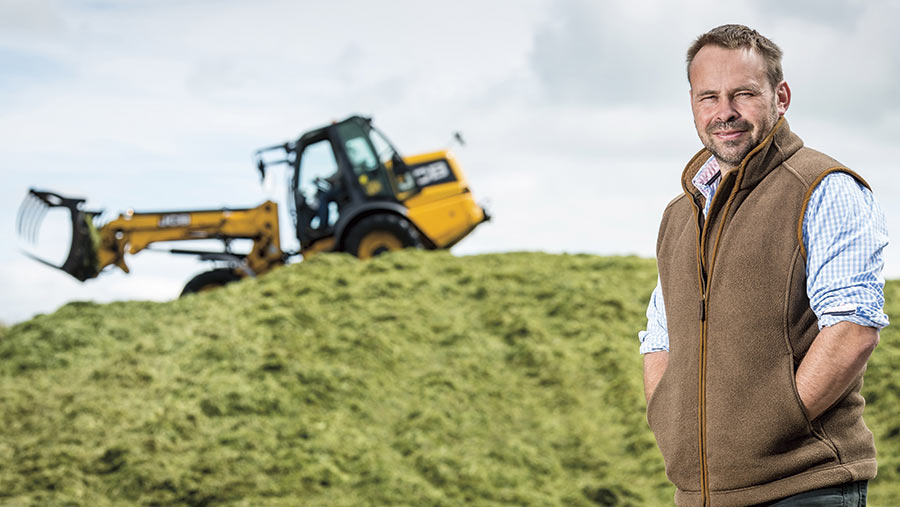Farmer Focus: No second cut after earliest silage ever
 © Jim Varney
© Jim Varney The silage is done. It is probably the earliest ever for this farm.
We were ready to cut two weeks earlier, but the weather stopped us. The silage pit was getting very full, so we baled and wrapped 200 bales of haylage for the sheep.
We have had a very good first cut and have some good-quality bales left from last year, so we won’t be doing a second cut. The challenge now is to manage the fogs ready to spane lambs on to. Silage fields will now be covered in 25t/ha of farmyard manure.
See also: Read more from our livestock Farmer Focus writers
The bulls will go out on 1 July for six weeks with the heifers and and seven weeks with the cows. The heifers have nearly finished their comprehensive vaccination programme.
Hens click into gear
Hen muck has now been put on the three worst-performing silage fields at 7.5t/ha. They have been ploughed to put into brassicas to finish lambs on this autumn. This is first use of our own chicken muck.
The hens are doing well and we have settled into a routine and are feeling a little more confident. Eggs are now leaving in reasonable quantities and finally instead of money just going out, it is starting to come back in.
We had a few challenging days in the very warm weather, trying to get the temperatures down in the shed. The hens didn’t seem to be as worried about it as we were.
Visitors galore
We have had the pleasure of a number of visitors these past few weeks. Two open days on the farm as well as visits from Sainsbury’s, the egg packer and our bank manager, looking at where all the money got spent.
Relatives from Canada and New Zealand have also been, while friends from Devon visited while competing in the blade shearing competition at the Northumberland County show.
We also had friends visiting to investigate going into organic layers in a similar system to ours. A busy time, but always a pleasure to show interested and have interesting people around.
Simon Bainbridge farm a 650ha upland organic farm with 160 suckler cows, 1,500 breeding ewes and 12,000 organic laying hens with his wife, Claire and his parents. Healthy, maternal livestock and quality feed is a priority.
